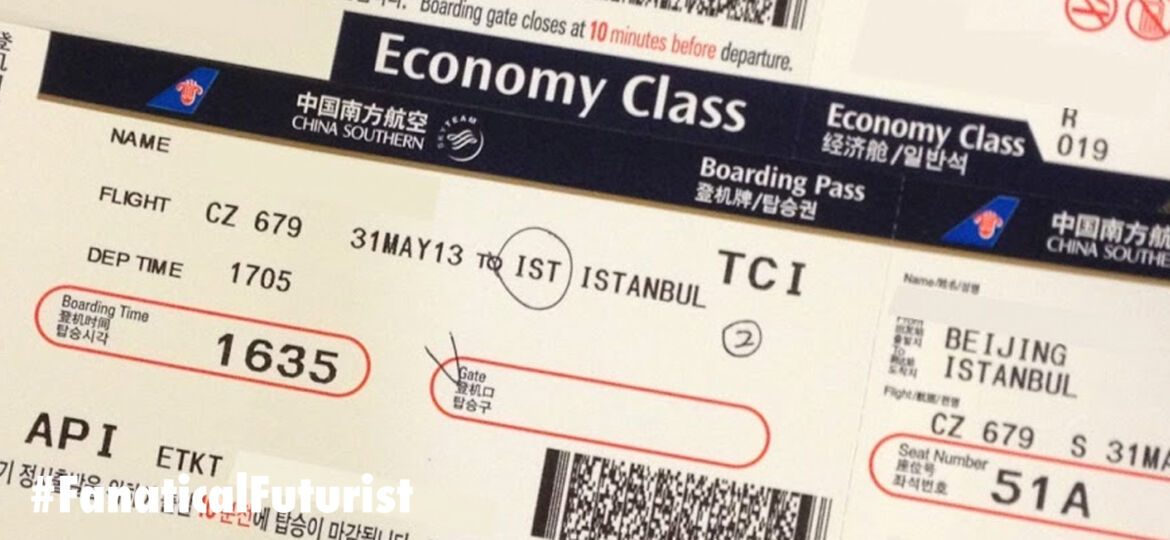
WHY THIS MATTERS IN BRIEF
- Biometrics is quickly becoming the security tool of choice for a vast number of governments and organisations, and increasingly I’m seeing them being used to create new “contactless” borders and “frictionless” customer experiences
Earlier this year I reported that Australia had decided to do away with the humble passport and roll out their “Seamless Traveller Initiative” that would allow 90% of everyone travelling into the country to experience a “contactless” border. In other words, your face was your passport – literally. Now, just seven months later and South China Airlines, one of China’s “big three” airlines, have announced that they’re getting rid of the humble boarding card and replacing it instead with new facial recognition technology, and they’ve started rolling it out at Jiangying Airport in Nanyang city, Henan province.
Under the scheme passengers don’t have to get a boarding pass at check-in, as cameras verify their faces with their passport photos, and the system authenticates them at the boarding gates just before boarding.
Hou Kan, a member of International Air Transport Association, said E-Tickets, E-Invoices and facial recognition would simplify check-in. Chinese airlines are keen to introduce new systems for the convenience of air travellers.
Before the smart boarding system was launched, China Southern Airlines had notified passengers to download the airlines’ app and upload a head shot before going to the airport to check-in.
The system verifies images on the app with passengers’ ID photos and their real-time images at the airport. Its takes just one second.
The airline developed the system with Baidu and GRG Banking.
Huang Wenqiang, general manager of the airline’s e-commerce division, said the smart-boarding system involved multiple encryption measures, which would prevent personal information theft.
The airline will apply the system later at Beijing’s new airport and other airports, said Han Wensheng, deputy general manager of China Southern Airlines.
With a fleet of over 700 aircraft, China Southern operates more than 2,000 flights linking 224 destinations in over 40 countries and regions. Its passenger throughput reached 150 million in 2016.
















